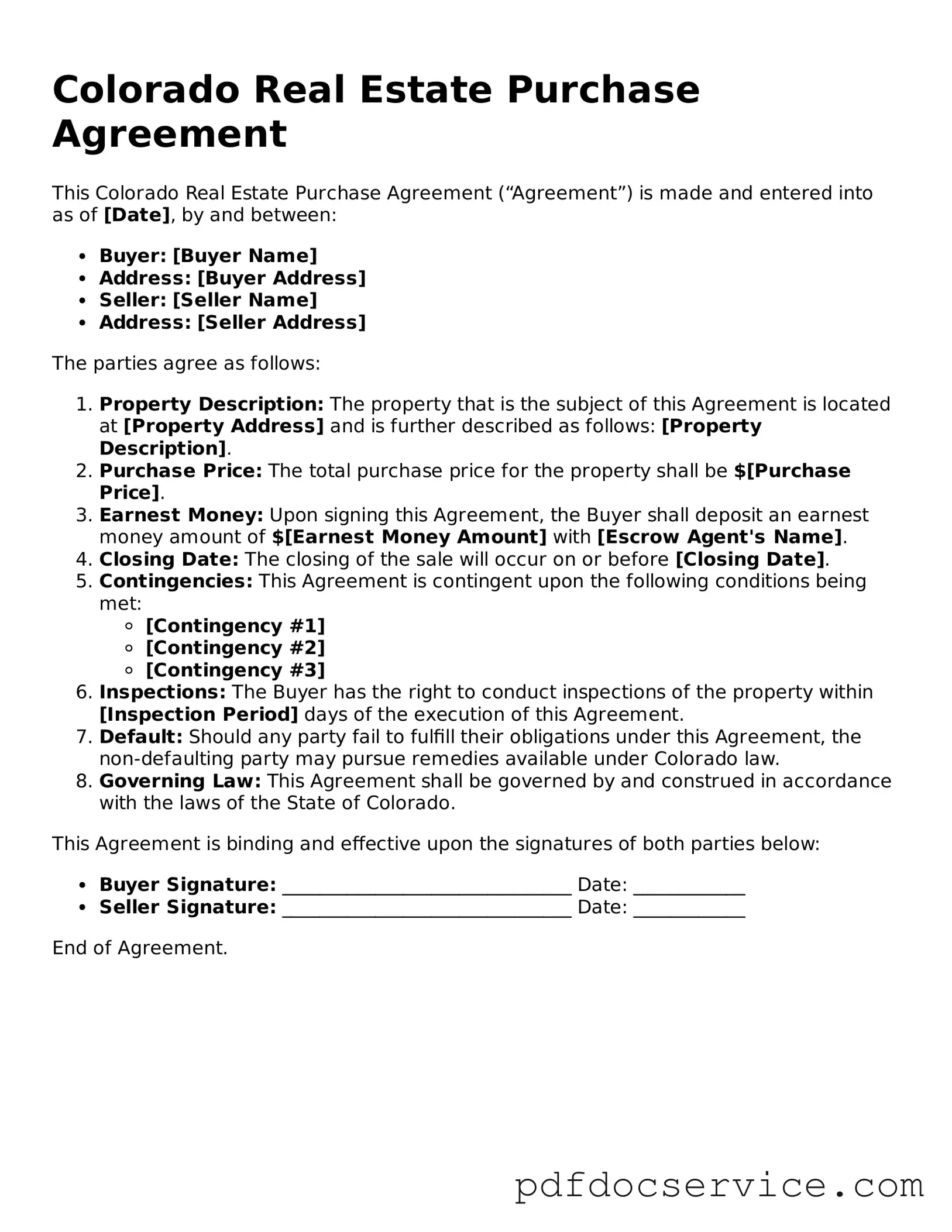What is a Colorado Real Estate Purchase Agreement?
The Colorado Real Estate Purchase Agreement is a legally binding document that outlines the terms and conditions of a real estate transaction. It is used when a buyer wants to purchase property from a seller and includes details such as the sale price, financing terms, and contingencies.
What are the key components of this agreement?
Key components of the Colorado Real Estate Purchase Agreement include:
-
Parties involved: Names and contact information of the buyer and seller.
-
Property description: A detailed description of the property being sold.
-
Purchase price: The agreed-upon price for the property.
-
Earnest money: A deposit made by the buyer to show commitment.
-
Contingencies: Conditions that must be met for the sale to proceed, such as financing or inspection.
-
Closing date: The date when the property transfer will occur.
Do I need a lawyer to complete the agreement?
While it is not legally required to have a lawyer when completing a Colorado Real Estate Purchase Agreement, it is advisable. A lawyer can help ensure that your rights are protected and that the agreement complies with state laws.
What contingencies can be included in the agreement?
Common contingencies that buyers may include are:
-
Financing contingency: Ensures the buyer can secure a mortgage.
-
Inspection contingency: Allows the buyer to have the property inspected before finalizing the sale.
-
Appraisal contingency: Protects the buyer if the property does not appraise for the purchase price.
-
Sale of current home: Allows the buyer to sell their existing home before completing the purchase.
How is earnest money handled?
Earnest money is typically held in a trust account by the real estate broker or attorney until closing. If the sale goes through, it is applied to the purchase price. If the buyer backs out without a valid reason, the seller may keep the earnest money as compensation.
What happens if either party breaches the agreement?
If either party breaches the agreement, the other party may have several options, including:
-
Seeking damages: The non-breaching party can sue for damages resulting from the breach.
-
Specific performance: The non-breaching party can ask the court to enforce the terms of the agreement.
-
Negotiation: The parties may choose to negotiate a resolution outside of court.
Can the agreement be modified after signing?
Yes, the Colorado Real Estate Purchase Agreement can be modified after signing, but both parties must agree to the changes. Any modifications should be documented in writing and signed by both the buyer and the seller to ensure clarity and enforceability.
What is the role of a real estate agent in this process?
A real estate agent plays a crucial role in facilitating the transaction. They can help draft the agreement, negotiate terms, and guide both parties through the process. Their expertise can be invaluable in navigating potential challenges.
When should the agreement be submitted to the title company?
The agreement should be submitted to the title company as soon as it is signed by both parties. This allows the title company to begin the title search and prepare for the closing process, ensuring a smooth transaction.
What should I do if I have more questions about the agreement?
If you have more questions about the Colorado Real Estate Purchase Agreement, consider reaching out to a qualified real estate attorney or a licensed real estate professional. They can provide personalized guidance based on your specific situation.

